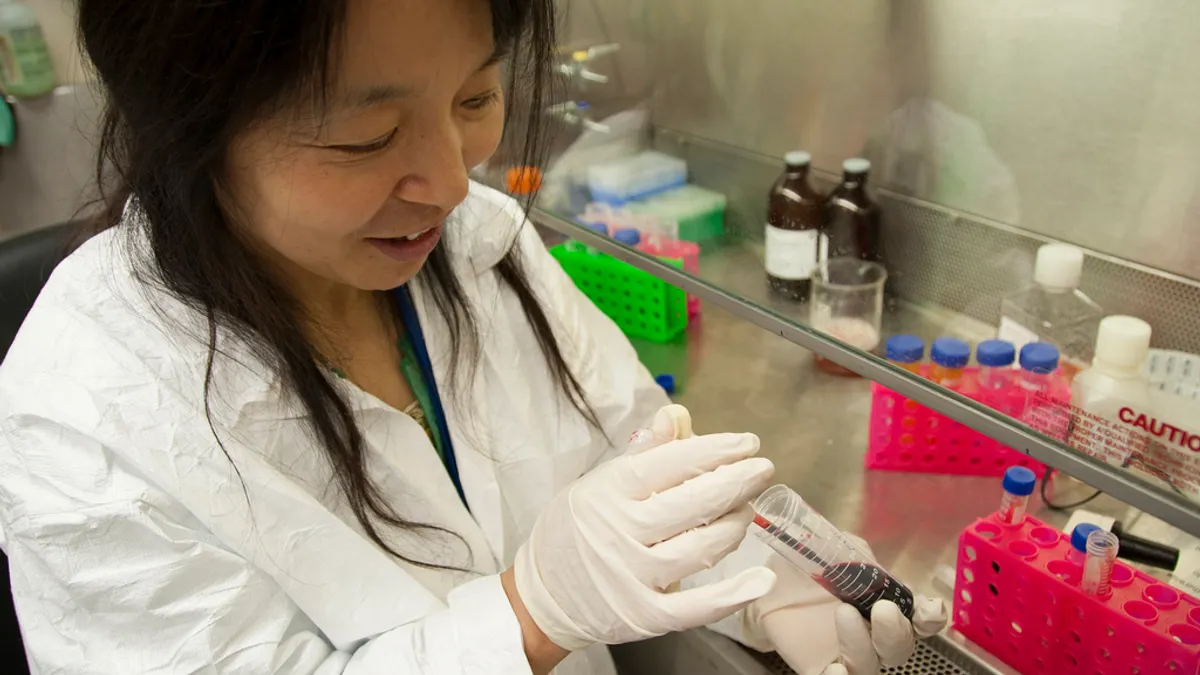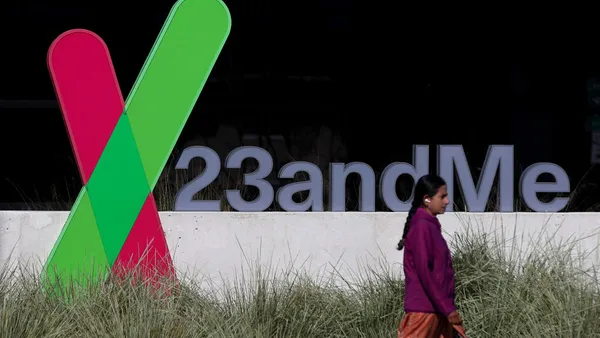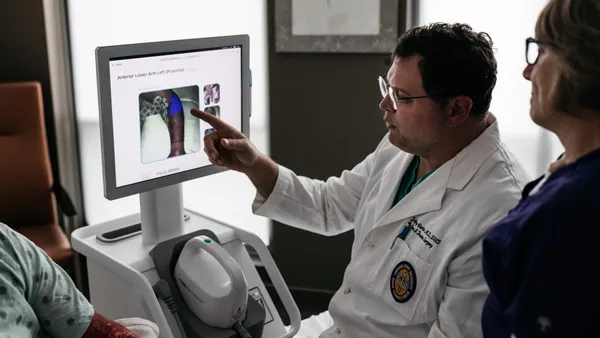Dive Brief:
- LabCorp’s drug development unit Covance and French biopharma Genfit said they will partner to expand the reach of Genfit’s non-invasive diagnostic test for the liver disease non-alcoholic steatohepatitis, or NASH.
- The licensing agreement aims to increase use of the blood-based biomarker test, called NIS4, in the clinical research market through Covance’s central laboratories, the companies said.
- LabCorp, one of the largest commercial clinical diagnostic laboratory companies in the U.S., and Genfit expect to further validate the test’s algorithm for use in identifying and monitoring patients with NASH and significant fibrosis and to gain insight on the disease pathogenesis.
Dive Insight:
NASH is an advanced form of non-alcoholic fatty liver disease characterized by a buildup of fat that causes inflammation and damage to the organ. It can lead to scarring of the liver and a potentially life-threatening condition called cirrhosis.
The condition affects tens of millions of Americans, according to National Institutes of Health estimates. With no Food and Drug Administration-approved treatments for NASH, Wall Street predicts a multi-billion dollar opportunity for the first company that brings an effective therapy to market.
A biopsy of the liver is the current clinical standard to diagnose NASH and its stages of fibrosis. Genfit said its blood-based NIS4 test draws on a bank of samples from roughly 700 patients to establish a combination of biomarkers to identify and monitor the disease in patients.
The company, which specializes in the development of drugs and diagnostic tests for liver diseases, said no extensively validated, non-invasive diagnostic tests exist for NASH. Genfit Chief Executive Jean-Francois Mouney said the collaboration with LabCorp will help move the NIS4 test closer to the goal of becoming an in vitro diagnostic to identify NASH patients who should be considered for therapeutic intervention.
LabCorp, which last month lowered its 2018 profit outlook as it grapples with weaker volumes in its diagnostics business and the effects of CMS payment cuts, has launched multiple initiatives to capture a bigger share of the fragmented lab services market. Projects include the opening of patient service centers in Walgreens stores and the integration of its lab test results into patients’ iPhones via Apple’s Health Records app.













